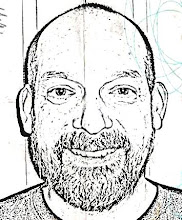 The New York Times reports that Belgian Paul Otlet first outlined the concept of the internet and the world wide web in 1934. The article says that:
The New York Times reports that Belgian Paul Otlet first outlined the concept of the internet and the world wide web in 1934. The article says that:In 1934, Otlet sketched out plans for a global network of computers (or “electric telescopes,” as he called them) that would allow people to search and browse through millions of interlinked documents, images, audio and video files. He described how people would use the devices to send messages to one another, share files and even congregate in online social networks. . .
. . .Otlet (pronounced ot-LAY) described a networked world where “anyone in his armchair would be able to contemplate the whole of creation.”
Although Otlet’s proto-Web relied on a patchwork of analog technologies like index cards and telegraph machines, it nonetheless anticipated the hyperlinked structure of today’s Web.
 The concept grew out of a project he started in 1895 to catalogue all of the world’s published knowledge and he eventually accumulated more that 12 million entries. His “mechanical, collective brain” was his solution to the obvious limitations of his paper-based system.
The concept grew out of a project he started in 1895 to catalogue all of the world’s published knowledge and he eventually accumulated more that 12 million entries. His “mechanical, collective brain” was his solution to the obvious limitations of his paper-based system.It makes we wonder how many other seemingly impossible ideas (both good and bad) in today's world may become commonplace in the not-too-distant future.












No comments:
Post a Comment